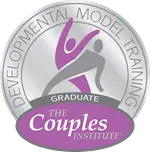In the modern world, couples often turn to a married marriage counselor to navigate the complex dynamics of their relationships. As relationships evolve, so do the methods of seeking professional guidance to maintain a healthy and fulfilling partnership. This shift towards seeking counseling from a married couple therapist signifies a deep commitment to working through challenges and prioritizing the relationship’s longevity.
In the quest for relationship bliss, more couples are recognizing the value of seeking guidance from a professional who not only possesses the expertise of a counselor but also understands the intricacies of marriage firsthand. The trust and relatability that a married marriage counselor can offer create a supportive environment for couples to address issues openly and work towards a harmonious partnership for a husband and wife or other types of marriages or commitments.
Amidst this shift, couples are finding solace in the expertise and understanding of a married marriage counselor, propelling them toward a more profound and connected relationship. It’s a testament to the evolving landscape of relationship counseling and the growing recognition of the unique perspective a married counselor can provide.
The Importance of Seeking Relationship Counseling
Maintaining a healthy and fulfilling relationship requires effort and commitment from both partners. However, navigating the complexities of a partnership can sometimes be challenging, leading to conflicts and misunderstandings. Seeking relationship counseling is a proactive step that couples can take to address underlying issues, improve communication, and strengthen their bond.
Counseling provides a safe and neutral space for couples to express their thoughts, feelings, and concerns. It offers an opportunity to gain valuable insights into each other’s perspectives and develop effective conflict resolution strategies. Additionally, counseling can help couples identify and address any underlying issues that may be impacting their relationship, ultimately fostering a deeper understanding and connection.
In today’s fast-paced world, where external stressors and responsibilities can strain a relationship, seeking counseling demonstrates a commitment to prioritizing the health and longevity of the partnership. By proactively addressing challenges and seeking professional guidance, couples can pave the way for a more harmonious and fulfilling relationship.
Common Challenges Faced by Couples
Every relationship encounters its share of challenges, and couples need to recognize and address them proactively. Communication breakdown, financial stress, intimacy issues, and conflicting priorities are among the common challenges that couples may face. These challenges can create tension, erode trust, and impact the overall quality of the relationship.
Communication breakdown is one of the most prevalent issues that couples encounter. Misunderstandings, lack of effective communication, and unresolved conflicts can strain the relationship and lead to resentment. Additionally, financial stress can create tension and disagreements, especially when partners have differing perspectives on managing finances and setting financial goals.
Intimacy issues, whether physical or emotional, can also pose challenges for couples. Differences in libido, intimacy-related anxieties, and unresolved emotional barriers can affect the level of connection and closeness between partners. Conflicting priorities, such as career aspirations, family obligations, and personal pursuits, can create discord and strain the partnership if not addressed openly and effectively.
The Role of a Marriage Counselor
A marriage counselor is pivotal in guiding couples through their relationship journey. With expertise in psychology, communication strategies, and conflict resolution, a skilled counselor provides a supportive and non-judgmental environment for couples to explore their challenges and develop healthier dynamics. A marriage counselor helps couples gain clarity, understanding, and practical tools to navigate their relationship effectively by fostering open and honest dialogue.
The role of a marriage counselor extends beyond simply mediating conflicts. A counselor also acts as a mentor, providing insights into the dynamics of healthy relationships and offering personalized guidance tailored to the unique needs and circumstances of each couple. Through a combination of therapeutic techniques, communication exercises, and personalized interventions, a marriage counselor empowers couples to address underlying issues, strengthen their connection, and foster a resilient partnership.
Furthermore, a marriage counselor serves as an objective third party, offering unbiased perspectives and facilitating productive discussions. This impartial guidance can help couples navigate sensitive topics, break through communication barriers, and work towards mutually beneficial resolutions. Ultimately, the role of a marriage counselor is to empower couples to cultivate a relationship that is built on trust, respect and shared vision.
Benefits of Seeking Counseling from a Married Marriage Counselor
Seeking counseling from a married marriage counselor offers unique advantages for couples navigating relationship challenges. A married counselor brings firsthand experience and understanding of a committed partnership’s dynamics, joys, and complexities. This relatability creates a sense of trust and empathy, allowing couples to feel understood and supported in their journey towards a healthier and happier relationship.
The relatability of a married counselor fosters a deeper level of connection and trust between the counselor and the couple. This facilitates a more open and honest exchange of thoughts and feelings, enabling the counselor to provide tailored guidance that resonates with the specific experiences and dynamics of the couple. Additionally, the shared experience of marriage enables the counselor to offer practical insights and strategies that are rooted in real-life experiences.
Moreover, a married marriage counselor can serve as a role model for couples, demonstrating the possibility of overcoming challenges and nurturing a lasting and meaningful partnership. The counselor’s relationship experiences can inspire and motivate couples, instilling a sense of hope and optimism as they work towards strengthening their bond. This relatable guidance can be instrumental in helping couples navigate obstacles, rebuild trust, and reignite the spark in their relationship.
The Process of Marriage Counseling
Marriage counseling typically involves a series of sessions aimed at addressing the specific challenges and goals of the couple. The process begins with an initial assessment, during which the counselor gains insights into the couple’s relationship dynamics, communication patterns, and areas of concern. This assessment phase sets the foundation for tailoring the counseling approach to the unique needs and circumstances of the couple.
Subsequent sessions focus on exploring and addressing the underlying issues that may be affecting the relationship. Through guided conversations, exercises, and interventions, couples gain insights into their patterns of interaction, communication styles, and emotional dynamics. The counselor facilitates constructive dialogue, encourages empathy and understanding, and equips the couple with practical strategies to navigate challenges effectively.
As the counseling process unfolds, couples work collaboratively with the counselor to implement the strategies and tools discussed during the sessions. This may involve practicing effective communication techniques, engaging in structured exercises to foster intimacy and connection, and exploring ways to rebuild trust and mutual respect. The counselor provides ongoing support, guidance, and feedback to help the couple navigate their journey toward a healthier and more fulfilling relationship.
The duration of marriage counseling varies based on the unique needs and progress of the couple. Some couples may benefit from short-term, focused counseling to address specific challenges, while others may opt for ongoing support to nurture and sustain the positive changes in their relationship. The process of marriage counseling is designed to be adaptable, personalized, and focused on empowering couples to create lasting positive changes in their partnership.
Building Trust and Intimacy in Relationships
Trust and intimacy are foundational elements of a fulfilling relationship, and nurturing these aspects is essential for creating a strong and resilient partnership. Building trust involves consistent honesty, reliability, and transparency in the interactions between partners. Trust forms the bedrock of emotional security and fosters a sense of mutual respect and understanding.
Intimacy encompasses both physical and emotional closeness, encompassing shared experiences, vulnerability, and genuine connection. Couples can cultivate intimacy by engaging in activities that foster emotional connection, such as meaningful conversations, shared hobbies, and expressions of affection. Physical intimacy, including expressions of affection and sexual connection, also plays a vital role in nurturing closeness.
Creating a culture of trust and intimacy involves prioritizing quality time together, demonstrating affection and appreciation, and actively working towards understanding each other’s needs and desires. By fostering an environment of emotional safety and vulnerability, couples can deepen their connection and fortify the foundation of their relationship. Trust and intimacy form the pillars of a resilient and fulfilling partnership.
Overcoming Obstacles in Marriage
Every relationship encounters obstacles and challenges, and overcoming them requires dedication, understanding, and proactive effort from both partners. When faced with obstacles, couples can benefit from approaching challenges as opportunities for growth and learning. By acknowledging and addressing the underlying issues, partners can work together to navigate obstacles effectively.
Seeking professional guidance, such as marriage counseling, can provide couples with the tools and insights needed to overcome obstacles. A skilled counselor offers perspectives, strategies, and support that empower couples to address challenges, rebuild trust, and strengthen their bond. By embracing the guidance of a counselor, couples can gain valuable insights and practical tools for navigating obstacles.
Moreover, maintaining open and honest communication during challenging times is crucial. Couples can benefit from expressing their concerns, fears, and hopes openly, creating a supportive environment for mutual understanding and collaboration. Seeking common ground, practicing empathy, and demonstrating a willingness to work through challenges together can help couples overcome obstacles and emerge stronger.
Embracing a growth mindset and a shared commitment to the relationship’s well-being can empower couples to overcome obstacles with resilience and determination. By approaching challenges as opportunities for growth and connection, couples can navigate obstacles, strengthen their bond, and cultivate a relationship that thrives amidst adversity.







